
"I consider trial by jury," Thomas Jefferson said, "as the only anchor ever yet imagined by man, by which a government can be held to the principles of its constitution."
Trial by jury has been around for hundreds of years. England's Magna Carta (1215 A.D.) mentions a form of jury trial. But it wasn't until the 1600s that the accused were given the right to a trial by jury to safeguard their rights. In response to the Stamp Act of 1765, which denied violators in the American Colonies a trial by jury, the Stamp Act Congress stated: "[T]rial by jury is the inherent and invaluable right of every British subject in these colonies."
All state constitutions guarantee this right, which dates back to the 13 Original Colonies. In 1791, the Bill of Rights made it the law of the land in the Sixth Amendment to the Constitution: "In all criminal prosecutions, the accused shall enjoy the right to a speedy and public trial, by an impartial jury of the State and district wherein the crime shall have been committed." But how are jurors selected? What is jury duty like? I recently discovered the answers to these questions.
Similar to other U.S. citizens who are registered voters with driver's licenses or state identification cards, I was eligible to serve on a jury. When I received a summons in the mail to report for jury duty, I made a note of the date and cleared my calendar. People who fail to answer a summons can be held in contempt of court and face punishment or legal action against them. Employers are required to allow their workers to report for jury duty without penalties to them.
This story is from the May/June 2023 edition of Cobblestone American History Magazine for Kids.
Start your 7-day Magzter GOLD free trial to access thousands of curated premium stories, and 9,000+ magazines and newspapers.
Already a subscriber ? Sign In
This story is from the May/June 2023 edition of Cobblestone American History Magazine for Kids.
Start your 7-day Magzter GOLD free trial to access thousands of curated premium stories, and 9,000+ magazines and newspapers.
Already a subscriber? Sign In
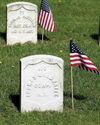
Putting the Pieces Together
Americans needed to begin to put the past behind them, come together, and plan for the future in the spring of 1865. But Abraham Lincoln, the man best equipped to lead them and who had hoped to restore the country as smoothly and peacefully as possible, had been assassinated.

LAST SHOTS
The last Confederate forces in the Civil War didn’t surrender in the spring of 1865 or on a battlefield.
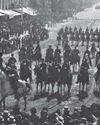
AND IN OTHER 1865 NEWS
A group of African Americans stop at the White House’s annual public reception on January 1, where they shake hands with President Abraham Lincoln.
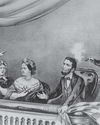
A Plot to Kill President the
For several months, actor John Wilkes Booth’s band of conspirators had plotted to capture President Abraham Lincoln and hold him hostage in exchange for Confederate prisoners.
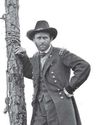
Let the Thing Be Pressed
In June 1864, Union Lieutenant General Ulysses S. Grant began a nearly 10-month campaign in Virginia.
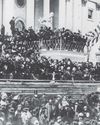
HEALING THE NATION
President Abraham Lincoln took the oath of office for the second time on March 4, 1865.

A Helping Hand
The spring season is hard in any agricultural society. Plants and animals are too small to eat.
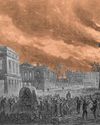
WAR SHERMAN-STYLE
As far as Union Major General William T. Sherman was concerned, the Civil War had gone on long enough.
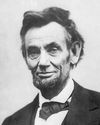
PEACE TALKS
The fall of Fort Fisher made clear that the Confederacy’s days were numbered. Southerners were tired and hungry.
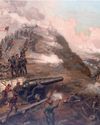
FORT FISHER'S FALL
Outnumbered Confederate soldiers inside Fort Fisher were unable to withstand the approach of Union troops by land and the constant Union naval bombardment from the sea.